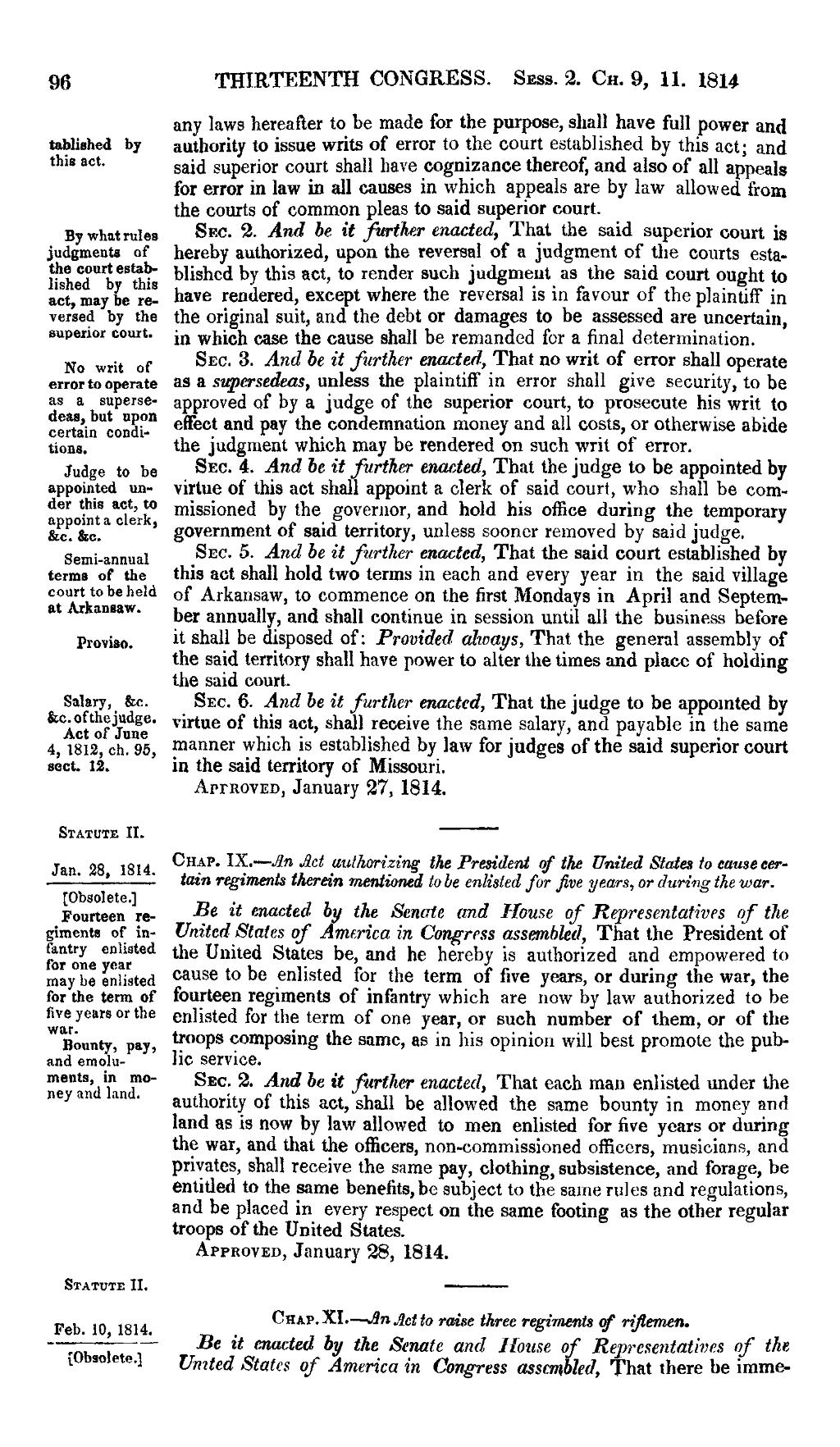any laws hereafter to be made for the purpose, shall have full power and authority to issue writs of error to the court established by this act; and said court shall have cognizance thereof, and also of all appeals for error in law in all causes in which appeals are by law allowed from the courts of common pleas to said superior court.
By what rules judgments of the court established by this act, may be reversed by the superior court.Sec. 2. And be it further enacted, That the said superior court is hereby authorized, upon the reversal of a judgment of the courts established by this act, to render such judgment as the said court ought to have rendered, except where the reversal is in favour of the plaintiff in the original suit, and the debt or damages to be assessed are uncertain, in which case the cause shall be remanded for a final determination.
No writ of error to operate as a supersedeas, but upon certain conditions.Sec. 3. And be it further enacted, That no writ of error shall operate as a supersedeas, unless the plaintiff in error shall give security, to be approved of by a judge of the superior court, to prosecute his writ to effect and pay the condemnation money and all costs, or otherwise abide the judgment which may be rendered on such writ of error.
Judge to be appointed under this act, to appoint a clerk, &c. &c.Sec. 4. And be it further enacted, That the judge to be appointed by virtue of this act shall appoint a clerk of said court, who shall be commissioned by the governor, and hold his office during the temporary government of said territory, unless sooner removed by said judge.
Semi-annual terms of the court to be held at Arkansaw.
Proviso.Sec. 5. And be it further enacted, That the said court established by this act shall hold two terms in each and every year in the said village of Arkansaw, to commence on the first Mondays in April and September annually, and shall continue in session until all the business before it shall be disposed of: Provided always, That the general assembly of the said territory shall have power to alter the times and place of holding the said court.
Salary, &c. &c. of the judge.
Act of June 4, 1812, ch. 95, sect. 12.Sec. 6. And be it further enacted, That the judge to be appointed by virtue of this act, shall receive the same salary, and payable in the same manner which is established by law for judges of the said superior court in the said territory of Missouri.
Approved, January 27, 1814.
Statute II.
[Obsolete.]
Chap. IX.—An Act authorizing the President of the United States to cause certain regiments therein mentioned to be enlisted for five years, or during the war.
Fourteen regiments of infantry enlisted for one year may be enlisted for the term of five years or the war.
Bounty, pay, and emoluments, in money and land.Be it enacted by the Senate and House of Representatives of the United States of America in Congress assembled, That the President of the United States be, and he hereby is authorized and empowered to cause to be enlisted for the term of five years, or during the war, the fourteen regiments of infantry which are now by law authorized to be enlisted for the term of one year, or such number of them, or of the troops composing the same, as in his opinion will best promote the public service.
Sec. 2. And be it further enacted, That each man enlisted under the authority of this act, shall be allowed the same bounty in money and land as is now by law allowed to men enlisted for five years or during the war, and that the officers, non-commissioned officers, musicians, and privates, shall receive the same pay, clothing, subsistence, and forage, be entitled to the same benefits, be subject to the same rules and regulations, and be placed in every respect on the same footing as the other regular troops of the United States.
Approved, January 28, 1814.
Statute II.
[Obsolete.]
Chap. XI.—An Act to raise three regiments of riflemen.

